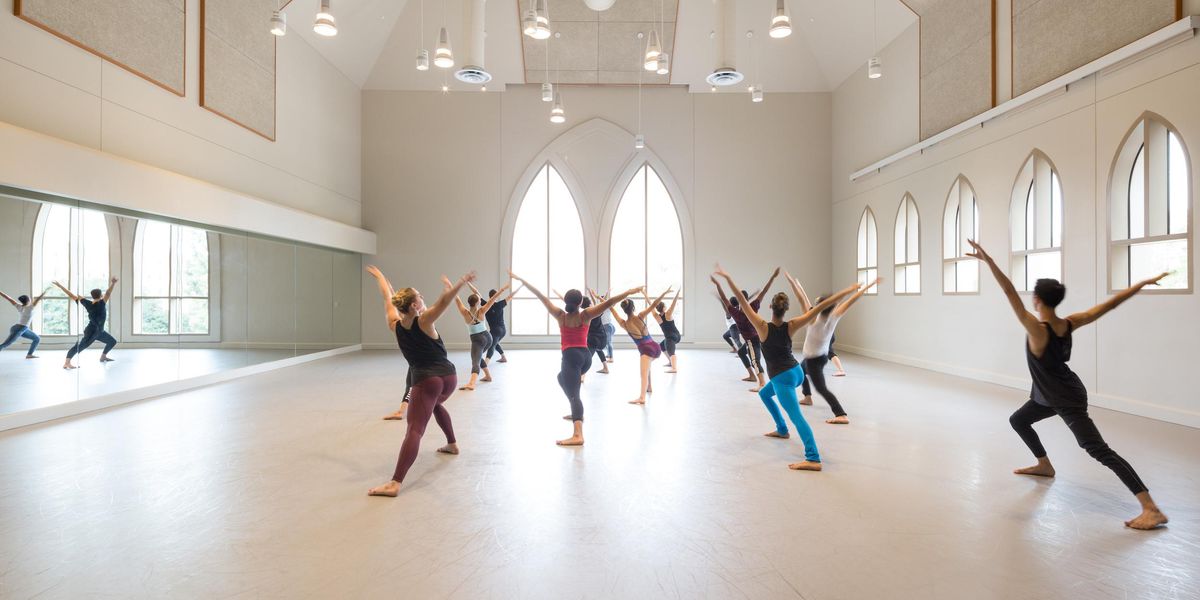Under Benoit Swan Pouffer, Could Rambert Become the New Cedar Lake?
When Rambert, the United Kingdom’s oldest professional dance company, announced Wednesday that Benoit Swan Pouffer had been appointed artistic director, it was hardly surprising news. Since April, two months after Mark Baldwin stepped away from Rambert after a 15-year tenure at its head, Pouffer has served as guest artistic director. That initial appointment was in and of itself a somewhat unexpected move, but the company had already brought the choreographer into the fold with a commission for its newly-formed junior company, Rambert2.
Pouffer, of course, is best known on this side of the pond as the former artistic director of the now-defunct Cedar Lake Contemporary Ballet. Under his leadership, the company became an incubator for edgy new work and an early commissioner of the likes of Ohad Naharin, Hofesh Shechter and Crystal Pite. But after its sole funder pulled their financial backing, in 2015 what was for many a dream company shut down.
Rambert is a different beast entirely, with a storied history that stretches back to 1926. It’s where Sirs Frederick Ashton and Antony Tudor cut their choreographic teeth. After transitioning away from being a touring classical ballet company in favor of newer contemporary works in the 1960s, its repertoire grew to include works by Glen Tetley, Merce Cunningham, Paul Taylor, Twyla Tharp, Trisha Brown and Lucinda Childs. Homegrown choreographers like Christopher Bruce and Richard Alston left their marks with new dances and through their legacies as artistic directors.
So while Pouffer has already made it clear that he has ambitious plans for Rambert, looking to the company as Cedar Lake 2.0 would be premature and overly simplistic. The company has a history that demands acknowledgment. (“At 92 years old you have some masterpieces,” Pouffer acknowledged in an interview with The Guardian.) This may make it less nimble when it comes to leaping ahead of the cutting edge in contemporary choreography the way Cedar Lake did. And it’s worth keeping in mind that with the U.K. currently in the throes of Brexit negotiations, work visas for dancers outside of the U.K.—perhaps even those from European Union member countries—could get complicated.
However, Rambert’s weighty history is also one of seeking out the most innovative artists currently at work. As Pouffer told The Guardian, “I want this company, Rambert, to be one of the best in the world. To be recognized as the beacon for contemporary dance in the U.K., and in Europe, and even the world.” He already has plans to bring in existing works by Wayne McGregor and Shechter, and has commissioned Jermaine Spivey (of Kidd Pivot) and Marion Motin (who has made moves for Christine and the Queens), two choreographers whose work is largely alien to the U.K. Pouffer has a track record of finding choreographers whose work is on the cusp of blowing up, and his enthusiasm for new work is clearly as strong as it ever has been. In August, the company even invited spectators into its London headquarters for an immersive installation—something Cedar Lake used to do with some regularity at its own building in New York City.
One thing is for certain: Pouffer is not a director who will be content resting on his laurels. We’ll be watching with interest as he shapes his vision for Rambert in the coming year.




